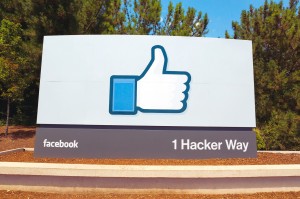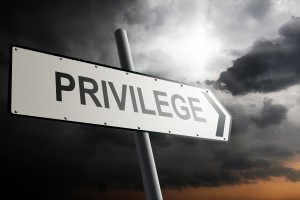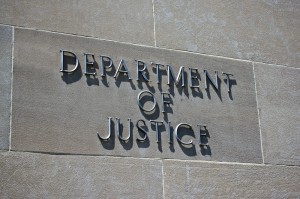Hayes Hunt and Michael Zabel
 The crime-fraud exception to attorney-client privilege: As an attorney, you may not anticipate it applying to your emails, your letters or your advice to your client. But even if you never see it coming, your client’s intentions in obtaining legal advice may expose your communications to disclosure. A law firm is experiencing this problem firsthand in a series of high-profile cases involving Facebook, Mark Zuckerberg and a former business partner. The cases present an interesting study in how the crime-fraud exception can operate.
The crime-fraud exception to attorney-client privilege: As an attorney, you may not anticipate it applying to your emails, your letters or your advice to your client. But even if you never see it coming, your client’s intentions in obtaining legal advice may expose your communications to disclosure. A law firm is experiencing this problem firsthand in a series of high-profile cases involving Facebook, Mark Zuckerberg and a former business partner. The cases present an interesting study in how the crime-fraud exception can operate.
But first, what is the crime-fraud exception? Simply stated, it is an exception to the attorney-client privilege that applies to communications when two conditions are met: (1) the client is committing or intends to commit a fraud or crime and (2) the attorney-client communications are in furtherance of that alleged crime or fraud. Importantly, the crime-fraud exception can apply even if counsel is unaware that the advice is being sought for an improper purpose. It is the client’s intent, not the attorney’s, that controls the analysis.
Consider this hypothetical: You represent a client who is suing a former business partner. In support of his suit, your client has produced an old written contract that appears to be signed by both the client and the former partner. As further support, he has emails between the partner and himself that appear to support the agreement’s authenticity.
But there’s also a problem: Your client’s former counsel, who withdrew from the same case, informs you that he did so because he found evidence that the old written contract was fabricated. You wind up withdrawing from the case a few months later.
withdrawing from the case a few months later.
Now imagine that the court hearing the civil case determines that your former client’s written agreement, as well as those supporting emails, are flat-out fakes. Federal prosecutors bring criminal fraud charges against your former client, and, invoking the crime-fraud exception, move the criminal court to compel the production of your communications with your former client.
Is the government’s position correct? Has attorney-client privilege been vitiated by your former client’s alleged fraud?
A law firm is facing just such a situation in New York federal court, where prosecutors are pursuing wire and mail fraud charges against Paul Ceglia, the man who notoriously sued Facebook and Zuckerberg four years ago. DLA Piper represented Ceglia for only about two-and-a-half months in the middle of his civil suit, but a federal judge is now reviewing over 1,000 of the firm’s documents to determine whether they should be turned over to the prosecutors in Ceglia’s criminal case.
 The basis for Ceglia’s prosecution arose in 2010 when he filed a civil suit against Facebook and its founder, Zuckerberg, in New York court. In the suit, Ceglia claimed he was the rightful owner of at least 50 percent of the social networking site. Attached to Ceglia’s complaint was a written contract between Zuckerberg and himself dating back to 2003, pursuant to which Zuckerberg would do programming for Ceglia’s website and Ceglia would fund the development of Zuckerberg’s yet-to-be-launched Facebook. Zuckerberg’s initials were purportedly on the first page, and his signature was on the second page of the two-page contract.
The basis for Ceglia’s prosecution arose in 2010 when he filed a civil suit against Facebook and its founder, Zuckerberg, in New York court. In the suit, Ceglia claimed he was the rightful owner of at least 50 percent of the social networking site. Attached to Ceglia’s complaint was a written contract between Zuckerberg and himself dating back to 2003, pursuant to which Zuckerberg would do programming for Ceglia’s website and Ceglia would fund the development of Zuckerberg’s yet-to-be-launched Facebook. Zuckerberg’s initials were purportedly on the first page, and his signature was on the second page of the two-page contract.
Zuckerberg and Facebook removed the case to federal court and immediately challenged the authenticity of the contract, asserting that the first page of the document, which contained the language regarding Facebook terms, had been fabricated. The actual written agreement, they asserted, had been a simple one: Zuckerberg (who was then still a student at Harvard University working on his own website) would perform programming work for Ceglia’s website in exchange for $18,000.
It was during the discovery period in the civil suit that DLA Piper was involved in Ceglia’s representation. The firm entered its appearance April 11, 2011. Two days later, one of Ceglia’s former attorneys, Aaron Marks, wrote to Ceglia’s lawyers, including the law firm, and advised that he had withdrawn from representation of Ceglia because he had seen evidence that the first page of Ceglia’s contract was fabricated. By late June 2011, DLA Piper was discussing its own withdrawal from the case, according to a privilege log produced by the firm itself. The firm ultimately withdrew from representation of Ceglia on June 29, 2011.
On March 26, 2012, Zuckerberg and Facebook asked the court to dismiss the case on the grounds of Ceglia’s fraud. In support of their allegation that the contract proffered by Ceglia was a fake, Zuckerberg and Facebook offered evidence from, among other things, a handwriting expert, a document dating specialist, forensic chemists, forensic document examiners, and a digital forensics firm. Ceglia offered evidence from his own experts in support of the document’s authenticity.
 Meanwhile, on Nov. 26, 2012, as the civil motion to dismiss was still pending, federal prosecutors filed a two-count indictment against Ceglia, alleging that Ceglia’s fabricated contract and accompanying civil suit constituted a scheme to defraud Zuckerberg and Facebook.
Meanwhile, on Nov. 26, 2012, as the civil motion to dismiss was still pending, federal prosecutors filed a two-count indictment against Ceglia, alleging that Ceglia’s fabricated contract and accompanying civil suit constituted a scheme to defraud Zuckerberg and Facebook.
A few months later, on March 26, 2013, the federal civil court sided with Zuckerberg and Facebook on their motion to dismiss. In an exhaustively detailed 155-page report, U.S. Magistrate Judge Leslie Foschio of the Western District of New York concluded, “Based on the evidence in the record, it is highly probable and reasonably certain that [Ceglia’s purported contract] and the supporting emails were fabricated for the express purpose of filing the instant action.” The judge also found “sufficient evidence of substantial spoliation [on the part of Ceglia] to support dismissal as a sanction.” On March 25, U.S. District Judge Richard Arcara adopted the magistrate’s report and dismissed Ceglia’s civil action with prejudice, which is now on appeal in the U.S. Court of Appeals for the Second Circuit.
The criminal prosecution of Ceglia continues. After Ceglia’s indictment, the U.S. Attorney’s Office subpoenaed DLA Piper and Kasowitz, Benson, Torres & Friedman for documents that could constitute evidence of Ceglia’s fraud. Given the obvious issues with attorney-client privilege, the government and Ceglia came to an agreement on how to resolve the inevitable privilege disputes: An assistant U.S. attorney who was not part of the prosecution team—called a “wall AUSA”—would review the documents at issue to determine whether the documents were subject to the crime-fraud exception to attorney-client privilege and thus available to the prosecution. Ceglia, on the other hand, could challenge such a determination before any documents were disclosed to the prosecution.
 After review, the wall AUSA in the case determined that DLA Piper and Kasowitz Benson’s documents fell under the crime-fraud exception and moved the court to make the documents available to the prosecution. Ceglia objected to production of the documents on the ground of privilege (among other reasons).
After review, the wall AUSA in the case determined that DLA Piper and Kasowitz Benson’s documents fell under the crime-fraud exception and moved the court to make the documents available to the prosecution. Ceglia objected to production of the documents on the ground of privilege (among other reasons).
As the party opposing a privilege claim and invoking the crime-fraud exception, it was then the government’s burden of proof to establish probable cause that Ceglia had committed fraud and that his communications with DLA Piper and Kasowitz Benson were in furtherance of that fraud.
There are two ways that a party can meet the probable-cause standard for the crime-fraud exception. First, the party could show a factual basis for probable cause exists independent of the communications themselves. In that instance, a court could order direct disclosure of the documents. The second way that the crime-fraud exception can be established is through an in camera review of the challenged communications. A party cannot, however, simply request an in camera review.
In United States v. Zolin, 491 U.S. 554, 574-75 (1989), the U.S. Supreme Court explained that “before a district court may engage in in camera review at the request of the party opposing the privilege, that party must present evidence sufficient to support a reasonable belief that in camera review may yield evidence that establishes the exception’s applicability.” The threshold “reasonable belief” showing, the court further explained, can be met through any relevant, nonprivileged evidence.
On Dec. 1, U.S. District Judge Andrew Carter of the Southern District of New York decided that in camera review of the challenged documents was appropriate, and ordered the firm to turn over a number of  documents claimed as privileged by Ceglia. Ultimately, if the court decides that Ceglia communicated with DLA Piper in furtherance of a fraud, more than 1,000 documents may be subject to disclosure to the prosecution.
documents claimed as privileged by Ceglia. Ultimately, if the court decides that Ceglia communicated with DLA Piper in furtherance of a fraud, more than 1,000 documents may be subject to disclosure to the prosecution.
Disclosure of attorney-client communications is not the only issue that the firm has to deal with. On Oct. 20, Zuckerberg and Facebook filed a malicious prosecution lawsuit against the firm and a number of other attorneys who represented Ceglia in his civil suit. One notable absence from the list of defendants in that case is Marks, the attorney who withdrew his representation after he learned about Ceglia’s alleged fraud.
Originally published in The Legal Intelligencer on December 17, 2014.

